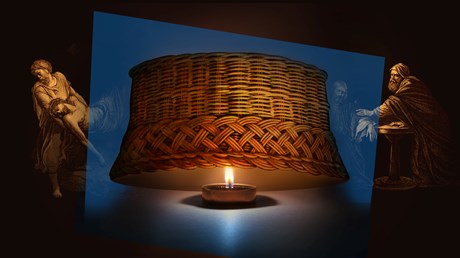Take it from the “secret disciples” who buried Jesus: Sometimes it’s prudent to stay mum about your faith.

He prayed fervently every time his car approached a border guarded by antagonistic Soviet soldiers as he sought to enter a closed country, Bibles stashed in his belongings. “Lord, in my luggage I have Scripture I want to take to Your children. Do not let the guards see those things You do not want them to see.”
Brother Andrew, known as “God’s Smuggler,” was responsible for sneaking millions of copies of the Word of God behind the Iron Curtain during the Cold War and helping plant the seeds of hope in places bereft of gospel witness, places ruled by Communist governments that restricted Christianity and persecuted Christians. His ministry, Open Doors, has a presence in 60 countries around the world and continues to advocate for persecuted followers of Christ.
Today in the West, we enjoy the precious gift of religious freedom. In some places it is even popular to be called a Christian. It can get you an audience, a job, and book contracts. Politicians even claim Christianity in order to win votes. So it can be difficult to grasp what it means to have to keep our faith a secret. But let us meet two characters in the Easter story in whom secret disciples around the world might find inspiration. Nicodemus and Joseph of Arimathea were marginalized believers in a different sort of way. They enjoyed power and prestige among the religious elite—but had to keep their love for Jesus quiet.
Smoldering wicks
We know from the Gospels that Jesus’ ministry provoked mostly widespread opposition from religious leaders, both the Sadducees and the Pharisees. But the Bible also shows specific examples of religious leaders who earnestly sought to understand Jesus and eventually became followers of Christ. ...
from Christianity Today Magazine
via




.gif)

.gif)
.gif)
